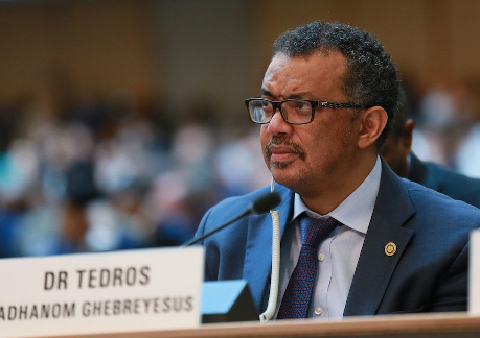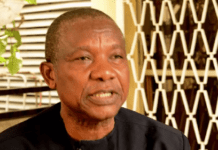-As Institution Introduces Worldwide Influenza Strategy
The World Health Organisation (WHO) has suggested an annual influenza vaccination as the most effective way to prevent influenza. It noted that vaccination is especially important for people at higher risk of serious influenza complications and for healthcare workers.
The Director General, WHO, Dr Adhanom Ghebreyesus Tedros made the submission during the unveiling of a Global Influenza Strategy for 2019-2030, at Geneva.

In a press statement released by the Apex Health Institution, it was noted that there are an estimated 1 billion cases of influenza across the globe annually, of which 3 to 5 million are severe cases, resulting in 290 000 to 650 000 influenza-related respiratory deaths.
Thus, to reduce influenza mortality rates across the globe, WHO launched the Global Influenza Strategy for 2019-2030, aimed at protecting people in all countries from the threat of influenza. The goal of the strategy is to prevent seasonal influenza, control the spread of influenza from animals to humans, and prepare for the next influenza pandemic.
“The threat of pandemic influenza is ever-present” said WHO Director General ,Dr Ghebreyesus Adhanom Tedros :“The on-going risk of a new influenza virus transmitting from animals to humans and potentially causing a pandemic is real. The question is not if we will have another pandemic, but when. We must be vigilant and prepared – the cost of a major influenza outbreak will far outweigh the price of prevention.”
Highlighting the components of the new strategy, Tedros described it as the most comprehensive and far-reaching that WHO has ever developed for influenza. It outlines a path to protect populations every year and helps prepare for a pandemic through strengthening routine programmes.
The two overarching goals of the new strategy as stated by Tedros are:
“Build stronger country capacities for disease surveillance and response, prevention and control, and preparedness. To achieve this, it calls for every country to have a tailored influenza programme that contributes to national and global preparedness and health security.
“Develop better tools to prevent, detect, control and treat influenza, such as more effective vaccines, antivirals and treatments, with the goal of making these accessible for all countries”.
“With the partnerships and country-specific work we have been doing over the years, the world is better prepared than ever before for the next big outbreak, but we are still not prepared enough,” said Dr Tedros. “This strategy aims to get us to that point. Fundamentally, it is about preparing health systems to manage shocks, and this only happens when health systems are strong and healthy themselves.”
However, for the strategy to be well implemented, he said effective partnerships are essential, as WHO is going to expand partnerships to increase research, innovation and availability of new and improved global influenza tools to benefit all countries. At the same time WHO will work closely with countries to improve their capacities to prevent and control influenza.
He further explained the benefits of the strategy, as it is said to meet one of WHO’s mandates to improve core capacities for public health, and increase global preparedness and was developed through a consultative process with input from Member States, academia, civil society, industry, and internal and external experts.













